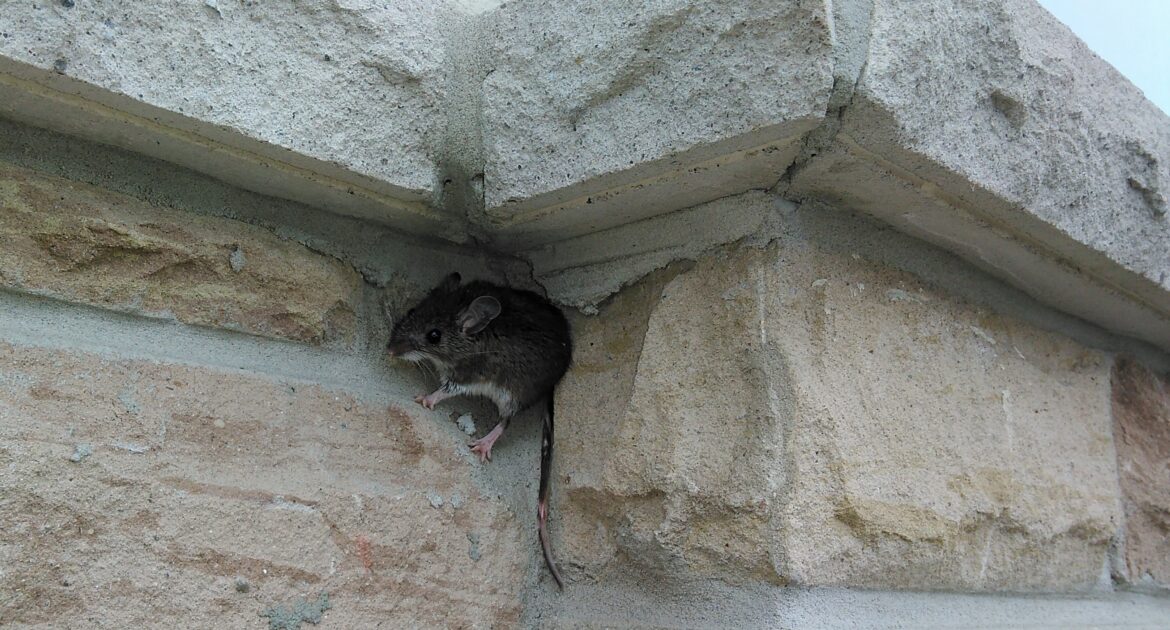When it comes to keeping your home safe and clean, knowing how to keep mice out of the house is crucial. Mice are more than just unwanted guests; they can carry diseases and cause significant damage to your property. With their keen ability to squeeze through small openings, your home’s foundation is often their entry point. Recognizing the signs of mice infestation early can save you time and frustration.
Droppings, gnaw marks, and strange noises at night can all indicate you have a problem. Once inside, these pests can chew through electrical wiring, insulation, and even drywall, leading to costly repairs. Getting rid of mice effectively requires understanding their habits and securing potential entryways. Inspecting your foundation thoroughly is a key step in preventing these rodents from making themselves at home.
This guide will walk you through identifying common entry points and what to do if you spot any signs of mice. By being proactive, you can protect your living space from unwanted intruders and ensure your family’s safety and peace of mind.
The Importance of Foundation Inspections
A well-maintained foundation is crucial in keeping mice out of your house. Mice are known for their ability to squeeze through the tiniest of openings, often as small as a quarter-inch. This is why inspecting your foundation is an essential first step in preventing an infestation.
During a foundation inspection, it’s important to look for any cracks, gaps, or holes where mice might gain entry. Many people are unaware of how many hidden routes these rodents can exploit. Even the smallest opening can serve as an invitation for mice to make themselves at home. By regularly checking your foundation’s condition, you can identify potential vulnerabilities before they become major issues.
It’s also worth noting that our climate in Colwood can contribute to foundation problems. Changes in temperature and moisture can cause materials to expand and contract, leading to the formation of new cracks. Staying vigilant and proactive with regular inspections can save you a lot of trouble in the long run.
Common Signs of Mice Infestation
Before focusing on repairs, it’s crucial to recognize the signs of a mice infestation. Many homeowners often miss these early indicators, allowing the problem to escalate. One of the most obvious signs is the presence of droppings around your home. Mice droppings are small, dark, and pellet-shaped, often found in kitchen cabinets, drawers, and other areas where food is stored.
Another common sign is gnaw marks. Mice are notorious for chewing on various materials, including wood, plastic, and even electrical wiring. If you notice gnaw marks on furniture, walls, or other surfaces, it’s time to start inspecting your foundation for potential entry points. These rodents are constantly seeking nesting materials, and any damage to your property can indicate their presence.
Finally, keep an ear out for scratching noises, especially at night when mice are most active. If you hear these noises coming from within your walls or ceiling, it’s likely that you’ve got unwanted guests. Addressing the issue promptly can prevent further damage and reduce the risk of health hazards associated with mice.
Identifying Vulnerable Areas in Your Foundation
While conducting a foundation inspection, focus on identifying any vulnerable areas that might allow mice to enter. Pay particular attention to the perimeter of your home, especially around doors, windows, and vents. These areas are often overlooked, but they can be prime targets for mice seeking a way inside.
Also, check for signs of erosion or damage to the foundation itself. Over time, wear and tear can create small openings that provide easy access for mice. In some cases, these entry points may be hidden behind bushes or landscaping, making them less noticeable. Regular inspections can help you stay ahead of potential problems and ensure that your foundation remains secure.
Remember to examine any utility lines entering your home, as these can also create vulnerabilities. Mice are skilled climbers and can easily use wires or pipes to access higher entry points. Sealing these areas effectively is critical in preventing an infestation.
Skedaddle’s Expertise in Wildlife Control
At Skedaddle, we understand the unique challenges that come with controlling wildlife, particularly in keeping mice out of your house. Our team of experts is experienced in identifying potential entry points and implementing effective solutions to prevent infestations. We’ve worked with countless homeowners in Colwood, helping them maintain a pest-free environment.
One of the reasons Skedaddle stands out is our commitment to humane and environmentally friendly practices. We prioritize the safety of both our clients and the wildlife we manage, ensuring that our approach is both ethical and effective. With a deep understanding of local wildlife and their behaviours, we tailor our services to meet the specific needs of each client.
Choosing Skedaddle means choosing peace of mind. Our comprehensive inspections and targeted solutions address the root of the problem, providing long-lasting results. Whether you’re dealing with mice or other wildlife issues, we’re here to help you protect your home.
Save Yourself the Headache
Keeping mice out of your home starts with a thorough inspection of your foundation. Recognizing signs of infestation, identifying vulnerable areas, and making effective repairs are all crucial steps in maintaining a mouse-free environment. Your home is your sanctuary, and proactive measures today can save you from headaches in the future.
If you suspect a mice infestation or need assistance securing your foundation, reach out to the experts at Skedaddle in Victoria. Our team is ready to help you tackle wildlife issues with professionalism and care. Don’t wait until it’s too late—schedule your inspection today and take the first step toward protecting your space.
For more information about our services and how we can assist you, feel free to contact us. Together, we can keep your home safe and secure from unwelcome visitors.




